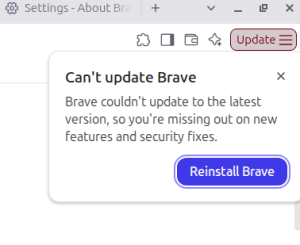Venus Project: Reality or Fantasy Land?

Ever have to give a friend a reality check? You know those times when somebody seems to be living in a fantasy land and you can’t get a straight answer about how they would implement their favorite socioeconomic model in real life. Maybe they don’t know the answers or maybe they know deep down that some overly idealistic models would inevitably implode if somebody tries to implement them on a large scale. However, when I have a question about the Venus Project, I’m not going to take its supporters seriously for long if I feel like they’re giving me the runaround.
Fortunately for the rest of us, there are people with enough of a sense of reality to not miss the obvious. When I pointed out some realities to one fellow who favors a barter system, he took it well enough to acknowledge that people could end up dropping out of such a system if bartering becomes more of a hassle than it’s worth. When an economic system becomes complex enough to require a medium of exchange to function smoothly, bartering becomes a niche thing that usually works best on the local level. I like the idea of church-basement “barter clubs” where people can bring in perfectly good items that they don’t need anymore and walk away with something else of equal value that they can use. However, when there’s no barter clubs in your community and you have to go through a half dozen trades to get what you want, things can get complicated enough to discourage people who don’t have the determination of this fellow in the below video.
One Red Paper Clip
This is the dude who took a paper clip to start a series of trades that ended up netting him a house. Brilliant bartering, and the whole point here is that it was entirely voluntary.
If you have to deal with a lot of arguments with doubters who don’t want to cooperate, well, people can tell when you’re trying too hard to be convincing with no hard facts to back yourself up and maybe you’re taking the wrong approach anyway. Supporters of Universal Basic Income can at least point to cities that successfully implemented this idea. Supporters of the Venus Project don’t even have that much and, therefore, have to deal with skeptics who like hard proof.
This may take some leadership from people who aren’t afraid to test their economic ideas in the real world. It’s one thing to argue ideas on Facebook and quite another to form a seastead to see if a miniature version of the Venus Project would work in real life. I bet such an idea would make many of its supporters flinch,. First off, a truly good seastead would take a considerable amount of money – though that may be the easy part when they could do the equivalent of selling shares to people who volunteer to join. A more serious consideration would be the humiliation of straggling back to shore if and when something goes tragically wrong and they have to give up. Not everyone is willing to risk the embarrassment and a lifetime of being ribbed for that kind of thing even when they talk big on the Internet.
However, the ones who are brave enough to actually try it can use the experience to modify their model down to reality. Some answers I’d like to see out of the Venus Project are mostly the methods its supporters intend to use:
- How to control criminal behavior. The Venus Project sites poverty as one major cause of crime, but how does its supporters intend to curtail individuals who engage in behaviors ranging from shoplifting to murder simply for the thrill of it? How does the Venus Project intend to treat mental illnesses such as schizophrenia that may contribute to criminal behavior? How does the Venus Project intend to deal with unrepentant criminals who refuse to recognize that their behavior was wrong?
- How to manage resources in a completely fair way. Any resource management plan is only going to be as good as the people who program the AI that Venus Project supporters claim will be able to manage the entire thing. Beyond obvious problems of corruption, theft and attempts to use violence to claim more than one’s fair share, how should this be managed so that nobody feels like they’re receiving less value than they contributed or another person is getting access to undeserved “extra” resources? In closed environments like a seastead or space colony, should we continue to utilize resources to support individuals that refuse to make a contribution to the community even though they are perfectly able to do so? How should negative events like a failed food crop or a catastrophic meltdown of the electric grid be handled?
- How to make the transition as smooth as possible. Just a tip: If you have to use violence or threats – even the threat of a dystopian future – to get your way, maybe your ideas aren’t that great to begin with. The documentation indicates that the Venus Project founder didn’t put a lot of thought into the “how” of making it a reality beyond saying that inventors and designers should not be burdened with the necessities of making a living. The primary problem will be how to persuade people that the Venus Project is going to be a good idea in the first place in the absence of proof that it can work, and especially considering recent concerns regarding an Artificial Intelligence that could turn out to be a lot like Ultron and conclude in its own logical way that the only surefire way to manage the human species over the long-term is to make us extinct.
- Are the participants involved on a voluntary basis? This may be the most important consideration if a socioeconomic system is going to last for more than a generation or two without constant damaging revolts from people who feel disenfranchised. In a world where voluntary governance systems are beginning to peek over the horizon, the most that Venus Project supporters may reasonably expect is a chance of becoming one of several competing systems that people can voluntary participate in and leave at any time.
The Venus Project probably won’t survive in its pure form partly because it won’t be as easy to control the worst of human nature as its supporters seem to think. However, this doesn’t mean I would try to prevent its supporters from trying to make it work as long as they can prove that participation is entirely voluntary. This is a major sticking point for me because I dislike the idea of people who never asked to be involved being in harm’s way when and if a system fails. Otherwise, the attempt will make a good learning experience that may help its supporters refine their model to something that might actually be practical and that’s the best reality check I know of.
[simple-rss feed=”http://rest.ebay.com/epn/v1/find/item.rss?keyword=%28Planet+Venus%2CVenus+Project%29&sortOrder=BestMatch&programid=1&campaignid=5337337555&toolid=10039&listingType1=All&lgeo=1&feedType=rss” limit=10]








